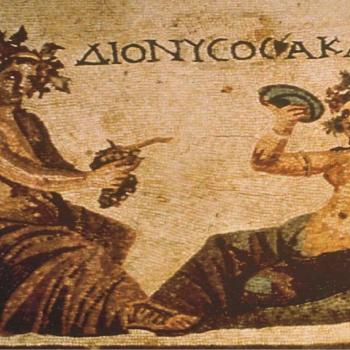
INTEGRATING MINORITY, MIGRANT AND REFUGEE PUPILS IN SCHOOLS/ (6-day/ 7-day) LIMASSOL
Students with a refugee or migrant background often face difficulties in adjusting to a new learning environment. Education needs to response and address the learning needs of students in increasingly diverse and multilingual classrooms.
Description
Minorities, migrants and refugees have been increased significantly in the recent years bringing changes in the structure of societies. Their efforts to search for better economic and social opportunities, often force them to cross borders and settle in new areas. The inclusion of minorities, migrants and refugees increases diversity in schools and societies. In this context, societies are responsible to formulate rules and policies. Schools have an important role to play for the integration of minorities, migrants and refugees. Through understanding of, respect for and α productive dialogue between the different groups, schools aim to go beyond passive coexistence, to achieve a developing and sustainable way of living together in multicultural societies.
This 6-day course gives participants theoretical background about the integration of migrants and refugees in schools, practical guidelines to integrate activities and implement programmes across the areas of the curriculum and school life. Discussions, site visits and group works will enrich sharing ideas and exchange of practice between participants. There is also the possibility to extend the course to 7-day.
Course schedule
DAY 1
• Migration & refugee crisis
• Dealing with migrant students’ challenges
• How do we deal with classroom diversity?
• Migration & Education
• Dealing with the parents
• Education policies supporting migrant children
• ICT tools for classroom communication
DAY 2
• Activities for team building
• Integrating newly arrived migrant students
• Visit to Limassol Old city center, Carob Mill Museum, Medieval Castle & Museum and other monuments.
• Doing activities in the city center.
• Data collection for the group work.
DAY 3
• Integrating migrant students in school
• Activities for cultural awareness and expression
• The use of ICT for intercultural dialogue
• Early school leaving
• The sense of belonging -Activities that enhance the sense of belonging
• Doing artworks
• Creating a secure and enriching environment
• AI tools for creating activities
DAY 4
• ICT for finding resources
• Teaching the language of instruction
• Home language teaching
• Intercultural education
• Models for Intercultural education
• Characteristics of Intercultural education
• Activities that encourage communication
• Globalization and Intercultural Education
• Inclusive education
• Intercultural activities in a multicultural classroom
• Intercultural education in Cyprus
• Activities for integration of migrant pupils at Cypriot schools
DAY 5
• School planning
• Classroom planning
• Celebrating diversity
• Visit to the Archaeological Museum of Limassol.
• Visit to the Municipal Garden.
• Data collection for group work.
DAY 6
• Activities for Secondary Education
• Facing incidents of racism and bullying
• Participants complete the group work, presentation of group work, review of the course, certificates.
DAY 7 (optional)
TOUR TO PAPHOS TOWN
It includes a tour with 5-stops (9:00 am– 5:00 pm) 5:00 pm)
• Tomb of the kings
• Catacomb of Agia Solomoni
• Paphos Archaeological Park with Roman mosaics
• Paphos Medieval Castle and port
• Petra tou Romiou (The birthplace of Aphrodite).
Learning objectives
During the course, participants will:
• discuss issues about migration in Europe & refugee crisis, challenges faced by migrant children, education policies supporting migrant children and dealing with the parents
• discuss issues about Intercultural education (characteristics and models).
• practice activities for team building; cultural awareness and expression; that enhance the sense of belonging and intercultural activities in a multicultural classroom.
• discuss issues about the language of instruction and the home language
• examine ways of managing diversity in classroom and creating inclusive culture in school
• examine best practices & policies for integrating minority, migrant & refugee children
• identify opportunities to integrate intercultural content across the areas of curriculum
• examine the school and classroom planning for intercultural education
• examine the use of ICT & AI tools for classroom communication; for intercultural dialogue; for finding resources
• examine ways about creating a secure and enriching environment for migrant children
• deal with incidents of racism and bullying
• visit sites, museums, monuments etc. and plan activities/ programmes.
Methodology & assessment
Materials, digital tools & other learning resources
Course Materials & resources
• Instructor guidance
• PowerPoint presentations
• Activity handouts
• Group work
• Digital tools & apps
• AI tools & apps
• Site visits (historical center, museums, archaeological parks)
Certification details
At the end of the course, each participant will be awarded the Certificate of Attendance together, if requested, with the Europass Mobility Certificate. The certificate is in line with the Erasmus quality standards and includes a short description of the course and its learning outcomes, the dates, the venue and the name of the course provider.
Pricing, packages and other information
-
Price:480Euro
-
Course package content:
Course packages (2 options):
6-day course: 480 euro
Included: course fees, course materials, tours, museum tickets.
7-day course: 560 euro
Included: course fees, course materials, tours, museum
-
Additional information:Description of the services and activities included in the course package (such as accommodation, meals, transport) or available at extra cost.
-
Cancellation & changes:
Course cancellations and refunds
• Cancellations at least 4 weeks before the course: EDUCULTURE will refund the entire amount, minus 10% or participants can join another course/session in the following 18 months.
• Cancellations less than 4 weeks before the course: EDUCULTURE will retain the entire amount, and participants can join another course/session in the following 18 months.
• Once the course has begun, EDUCULTURE will retain the entire amount paid.
• Cancellations due to force majeure at least one week before the course: EDUCULTURE will refund the entire amount.
• Cancellations due to force majeure less than one week before the course: EDUCULTURE will refund the entire amount, minus 10% of the course fee, or participants will be allowed to join another course/session in the following 18 months.
• Once the course has begun and is cancelled due to force majeure, EDUCULTURE will retain the entire amount paid and implement the rest of the course online. -
Additional information:The options and conditions for change and cancellation, and the policy in case of unforeseen circumstances (force majeure).
Additional information
-
Language:English
-
Target audience ISCED:Primary education (ISCED 1)Lower secondary education (ISCED 2)Upper secondary education (ISCED 3)
-
Target audience type:TeacherHead Teacher / PrincipalSchool Psychologist
-
Learning time:25 hours or more
Upcoming sessions
Past sessions
More courses by this organiser

IN THE ROOTS OF WINE- Ancient Greek history, mythology & art/ (6-day/ 7-day) LIMASSOL

DRAMA IN EDUCATION -Using drama as a tool in teaching and learning/ (6-day/ 7-day) LIMASSOL



